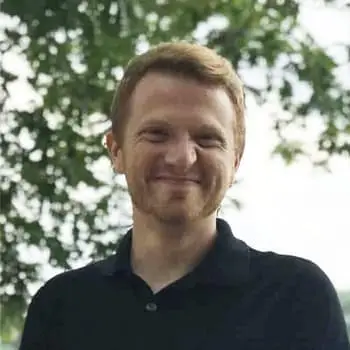Article Overview:
- Gabapentin is a medication used for seizures and nerve pain.
- It is not a controlled substance at the federal level, but some states have made it a controlled substance.
- It is possible to overdose on gabapentin.
- Gabapentin withdrawal symptoms can include agitation, disorientation and confusion.
Gabapentin is a seizure and nerve pain medication that has received national attention for its abuse potential. The prevalence of gabapentin misuse is about 1% among the general population, up to 65% among patients with a prescription for gabapentin, and up to 22% among people who used opiates.
In America specifically, gabapentin use is common. Gabapentin is the eleventh most frequently prescribed drug in the country. Misuse and abuse of gabapentin is a growing issue, but treatment options are available in Colorado and across the country.
What Is Gabapentin (Neurontin)?
Gabapentin, which is the generic name of the brand-name drugs Neurontin and Gralise, is a neuromodulator, developed initially as an anticonvulsant. It is FDA-approved for nerve pain following shingles (postherpetic neuralgia) and seizures, but may also be used off-label in other conditions like:
- Alcohol use disorder
- Alcohol withdrawal
- Chronic cough
- Fibromyalgia
- Hiccups
- Nerve pain
- Itching
- Restless legs syndrome
- Social anxiety disorder
- Menopausal symptoms
Some side effects of gabapentin use may include:
New Year. Real Recovery.
The pressures of the season are real. Find lasting peace and expert support.

- Dizziness
- Drowsiness and fatigue
- Sedation
- Swelling
- Blurred vision
- Impaired coordination (ataxia)
- Involuntary eye movements (nystagmus)
- Double vision (diplopia)
- Lazy eye (amblyopia)
- Dry mouth (xerostomia)
Is Gabapentin Addictive?
The Drug Enforcement Administration does not classify gabapentin as an addictive drug, so gabapentin is not a controlled substance at the federal level. However, experts in certain states have disagreed due to an increase in gabapentin abuse, and multiple states have classified the drug as a controlled substance within their jurisdictions.
Gabapentin has been primarily used to increase the effects of opiates. It is also used as an adulterant in heroin to increase weight and volume, reducing dealer cost and maximizing profit.
Understanding Gabapentin Addiction
Gabapentin addiction can start with misusing the drug or intentionally abusing it. With gabapentin, a person should not take more than their directed dosage limit. Typically, the maximum daily dose of gabapentin is up to 3600 mg a day, but dosage may vary depending on a person’s unique needs.
Gabapentin Overdose
Gabapentin can be fatal with overdose. There is no specific reversal agent for a gabapentin overdose. The potential for a fatal overdose is increased if the person uses several drugs at once.
Indicators of gabapentin overdose may include:
- Double vision
- Slurred speech
- Drowsiness
- Lethargy
- Diarrhea
Drug overdose can be fatal. If you suspect someone is experiencing an overdose, call 911 immediately. Do NOT be afraid to seek help. If you do not have access to a phone contact Web Poison Control Services for online assistance.
Gabapentin Withdrawal
When a person stops taking gabapentin, they may go through withdrawal. Gabapentin withdrawal can set in within 12 hours to seven days after the last dose of gabapentin.
Symptoms of gabapentin withdrawal may include:
- Agitation
- Disorientation
- Confusion
Why Isn’t Gabapentin Addictive?
Gabapentin is mildly rewarding and produces withdrawal symptoms upon cessation of use. However, gabapentin’s addictive potential is minimal. Addictive drugs produce an intense reward, which leads to a compulsion to reuse. This activity is part of the dopaminergic reward system. Gabapentin does not work directly on dopamine; therefore, its reward potential is minimal.
In most cases, gabapentin abuse happens due to a person’s desperation and lack of available alternatives — not because it is addictive.
How Long Does It Take to Get Addicted to Gabapentin?
Gabapentin addiction timetables may depend on many factors, including:
- How soon withdrawal symptoms set in
- The dosage of gabapentin, or how much gabapentin a person takes regularly
- How long someone has taken gabapentin
Gabapentin appears to be a drug of last resort for people rather than a substance of primary interest. The popularity of abused substances waxes and wanes along temporal and geographical lines due to a multitude of variables. Clinicians must stay current on substance abuse trends to be effective and offer high-quality care.
Need help with a gabapentin addiction? The Recovery Village at Palmer Lake offers comprehensive addiction treatment programs in a safe, supportive environment. Call us today to learn more about rehab for gabapentin addiction.



